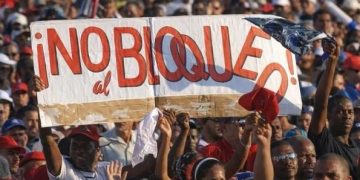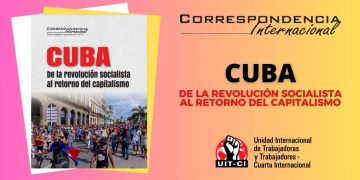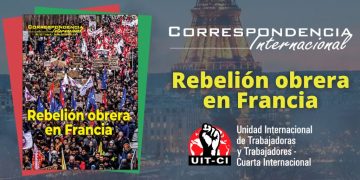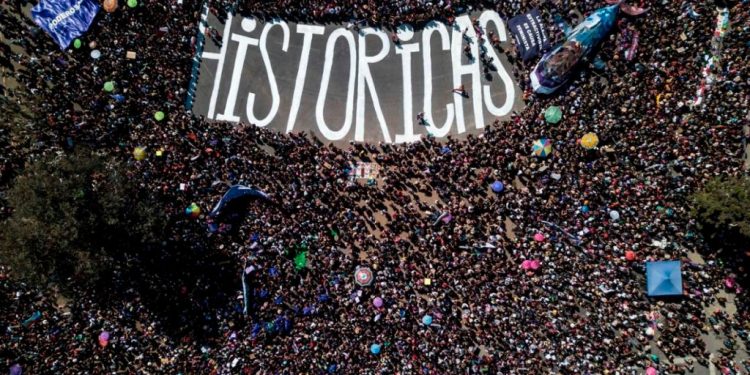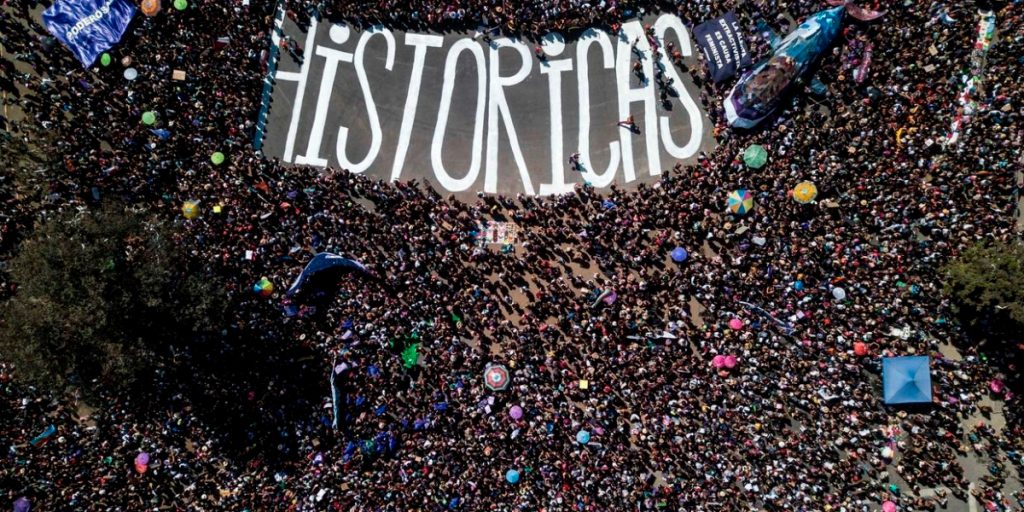 Our rights are essential
Our rights are essential
The COVID-19 pandemic revealed the magnitude of the crisis of the capitalist-imperialist system worldwide and the disaster to which its mode of accumulation is leading, which is manifested in the destruction of nature, the production of new epidemics and the increase in poverty and inequality, which particularly affects women workers and the popular sectors. The combination of the pandemic and the economic crisis has revealed that this patriarchal capitalist system increases gender inequalities in all its dimensions with the increase in the feminisation of poverty, the increase in the burden of care work for women, the exponential increase in gender violence and femicide and the restriction in access to sexual, reproductive and non-reproductive rights.
Although the virus does not distinguish between borders, genders or social classes, its impact on the health and life of the population does. Thus, while capitalist governments seek different strategies to «save the economy», more and more workers are infected and killed because they are forced to work by the lack of social protection measures to survive in isolation, as in the case of Argentina under Fernandez or Chile under Piñera where millions of non-essential workers are forced to catch Covid-19 in public transport, factories and shops. The same is true in countries like Lopez Obrador’s Mexico, Bolsonaro’s Brazil or Moreno’s Ecuador where no sanitary isolation measures apply and those who choose to preserve themselves face hunger and lay-offs. Or in countries such as Spanish State, where neither the Sanchez-Iglesias government nor the regional governments have been able to guarantee the necessary health conditions so that the return to work is carried out in the basic conditions so as not to expose the lives of the workers; thus there have been outbreaks with labour origins, such as in the fruit fields or now with the reopening of the schools.
Today we are living through the privatisation of national health systems, resulting in a devastating public health system that barely survives with the overexploitation of workers, most of whom are women doctors and nurses on the front line of the pandemic. Private health care is presented as a resource for the few, which increases the death rate of the popular sectors, the undocumented migrant population, informal workers, and the overcrowded inhabitants of poor neighbourhoods, among others, as in the case of the United States governed by Trump, where it is the African-American and Latino population that has the highest mortality rate due to the inability to pay for private medicine.
But that is not the only serious aspect of the pandemic, for while the COVID-19 figures make the headlines, the other faces of the pandemic take their toll. One of these is unsafe abortion. According to a Guttmacher Institute study in April 2020, a conservative estimate, with only a 10 per cent decrease in access to sexual and reproductive health care, it is estimated that 49 million people worldwide will not have access to safe contraception in 2020 when they did before, and as a result, 15 million more unwanted pregnancies could occur because of lack of access to methods in the first year of the pandemic. An estimated 3 million more unsafe abortions will take place this year, mostly in the poorest countries. And deaths from clandestine abortions will increase by 28,000 cases of pregnant women. This problem is growing as intra-family sexual abuse within the home increases as part of compulsory isolation measures.
The ways in which access to sexual and reproductive health and abortion have been violated in the year of the COVID-19 pandemic are multiple. From the reorientation of health systems to almost exclusively attend to the problem of COVID-19, leaving aside all health problems, especially preventive ones, to the closure of borders between countries or cities which prevented thousands of pregnant women from travelling from one place to another to carry out the practice. For example, in Spanish State, where the voluntary abortion law has been in force since 2010, only two communities decided to remove the obligation to go in-person to a health centre before being able to make an appointment for an abortion.
In other countries, such as the United States, many Trumpist governors attempted to take advantage of the pandemic situation to declare abortion services non-essential, as in the cases of Texas, Oklahoma, Alabama, Iowa, Ohio, Arkansas, Louisiana and Tennessee to restrict access to abortion, although these bans were overturned by federal or state courts and judges in most cases thanks to the efforts of pro-abortion activists and organisations. And in countries such as Ireland where legal abortion was conquered in 2018, resources for abortion services shifted towards pandemic care. But even the restrictions exceeded the budget. In countries such as Saudi Arabia, Russia and Brazil, among others, governments began banning websites that provide information on safer terminations of pregnancy, through medication, on the grounds that they are the cause of pregnancy terminations that the health system cannot then deal within the face of complications, rather than taking responsibility for women’s rights.
The Central American and Caribbean region has three of the few countries in the world where abortion is criminalised in all circumstances: Nicaragua, Salvador and the Dominican Republic. And in Venezuela, Maduro’s false socialist government only allows abortion if the mother is in danger. In other countries where the three causes exist, such as Panama, the government is trying to advance measures of greater obstacles to non-punishable abortion, even seeking to eliminate this right, which is also the case in Poland.
Likewise, governments and conservative and religious sectors have sought to make progress in condemning and criminalising women’s mobilisation. In Spanish State, these sectors have tried to blame the women who mobilised on 8 March for the development of the pandemic in that country. In Turkey, Erdogan has repressed the mobilisation of women who demanded the fulfilment of the Istanbul Protocol against male violence.
But despite the impact of the pandemic and the attempts of the capitalist governments together with the churches, to erase our rights and stop our fights, the feminist movement is still alive claiming the right to decide about one’s life and body. That is why women in countries like Mexico continue to demand the legalisation and not only the decriminalisation of voluntary abortion in the different states of that country but also the demand that the government take charge of guaranteeing the housing of women who suffer gender violence. In Argentina, despite the government’s evasions, the force that lit the green tide continues to demand that legal, safe and free abortion be made law. Just like the Chilean, Brazilian, Peruvian, Bolivian, Panamanian, Dominican, Ecuadorian and Nicaraguan women, along with women from all over the world. Therefore, on 28 September, the international day of a struggle for the decriminalisation and legalisation of abortion and the international day of action for women’s health, we say: not another woman in prison, not another dead, not another mutilated for a clandestine abortion. Stop privatisation of the health systems, let us defend and recover public health that guarantees our sexual and reproductive rights without restrictions or discrimination. Let’s make a big day of fighting for women’s health.
We call on working women, students and activists to continue to mobilise all over the world. We cannot allow the pandemic to be used as an excuse by governments to criminalise, repress and attack our fundamental rights. Not one step back from the rights we have won and we are going for more. We demand the right to voluntary legal, safe and free abortion for all women and people with the possibility of pregnancy. Let’s organise a big day of struggle this 28 September, independent from all capitalist governments. From the most reactionary ones like Trump, Bolsonaro or Erdogan to the ones with double talk like Fernandez and Lopez Obrador, all of them are against women’s rights. They choose to stand for the churches and the economy of the big capitalists, while they try to kill us with austerity plans, macho violence and clandestinity. Therefore, let us advance in the organisation of working women, independent of the capitalist governments, to continue fighting until we get what we are entitled to. Our rights are essential.
– Stop the criminalisation of women’s struggles. Not another death, not another imprisoned for abortion.
– Sex education to decide, contraceptives not to abort and legal abortion not to die. Safe and free legal abortion now.
– Separation of religious institutions from states.
– Immediate increase in health budgets based on non-payment of foreign debts and taxes on large fortunes and wealth. For a single public, universal and feminist health systems.
International Workers’ Unity – Fourth International
21/09/2020


















